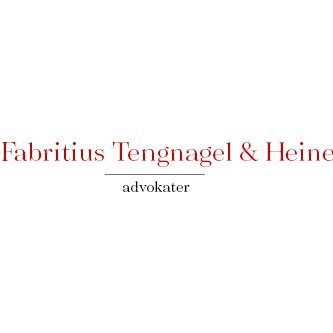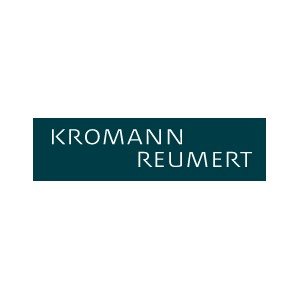Best Natural Resources Lawyers in Denmark
Share your needs with us, get contacted by law firms.
Free. Takes 2 min.
Or refine your search by selecting a city:
List of the best lawyers in Denmark
About Natural Resources Law in Denmark
Denmark is known for its commitment to sustainable management of its natural resources. This includes a range of resources such as minerals, oil, gas, forests, water, and land. Danish law governs the exploration, extraction, and use of these resources to balance economic needs with environmental protection. The country's legal framework is designed to promote efficient and sustainable use of natural resources while safeguarding the rights and interests of various stakeholders, including indigenous populations, private landowners, and the public.
Why You May Need a Lawyer
There are numerous situations where individuals or businesses may require legal assistance in the area of natural resources in Denmark. These can include:
- Negotiating and drafting contracts for the exploration and extraction of natural resources.
- Navigating the regulatory processes for obtaining necessary permits and licenses.
- Ensuring compliance with environmental regulations and managing environmental impact assessments.
- Resolving disputes over land use, resource ownership, or extraction rights.
- Dealing with penalties or legal actions resulting from alleged violations of natural resources laws.
- Participating in public consultations or seeking compensations related to natural resources projects.
Local Laws Overview
Denmark's natural resources laws are comprehensive and rooted in a combination of national legislation and European Union directives. Key aspects include:
- The Danish Subsoil Act: Governs the exploration and extraction of raw materials, including oil and gas.
- The Mineral Resources Act: Regulates activities related to the extraction of other minerals.
- The Environmental Protection Act: Ensures that all activities related to natural resources comply with environmental standards to mitigate harm to nature and biodiversity.
- Water Framework Directives: Sets the framework for water management, encompassing both qualitative and quantitative aspects.
- Forestry Law: Deals with the utilization, conservation, and protection of forests.
Frequently Asked Questions
What constitutes a natural resource in Denmark?
Natural resources in Denmark typically include minerals, oils, gases, water, forests, and land, among other resources that can be sourced from the natural environment.
How is natural resource ownership determined?
In Denmark, ownership of natural resources is primarily governed by the state. However, private ownership of land can include rights to specific natural resources found on or beneath the surface, subject to regulations and permits.
What permits are required for resource extraction?
Permits vary depending on the type of resource being extracted. Usually, a combination of exploration and exploitation licenses is required, which can be obtained through relevant governmental bodies.
Are there environmental assessments required for resource projects?
Yes, environmental assessments are mandatory for any project likely to impact the environment significantly. This is a crucial part of the project planning process to ensure compliance and sustainable practices.
How are disputes in natural resources resolved?
Disputes can be resolved through negotiation, mediation, arbitration, or litigation. The choice depends on the nature and scale of the dispute.
Are there special laws for protecting marine resources?
Yes, marine resources are protected under various nautical and environmental laws and include specific regulations to preserve biodiversity and prevent pollution.
Can foreigners invest in natural resource projects in Denmark?
Foreign investment is generally welcome, but investors must comply with local laws, including obtaining all necessary permits and adhering to environmental standards.
What are the penalties for breaching natural resources laws?
Penalties can range from fines to suspension of licenses and, in severe cases, criminal charges. This depends on the nature and severity of the violation.
How does Denmark ensure sustainable resource use?
Denmark enforces strict regulations on resource extraction activities and integrates sustainable practices into its legal framework to ensure long-term environmental health and economic viability.
How can I find legal precedents related to natural resources?
Legal professionals can access case law databases, or you might consult public records available through governmental agencies or legal libraries.
Additional Resources
For further assistance, individuals and businesses can reach out to various resources, including:
- The Danish Ministry of Environment and Food (Miljø- og Fødevareministeriet)
- The Danish Energy Agency (Energistyrelsen) for issues related to energy resources
- The Geological Survey of Denmark and Greenland (GEUS) for geological data and surveys
- Environmental Protection Agency (Miljøstyrelsen) for compliance and permits
- Local legal councils specializing in environmental and resources law
Next Steps
If you find yourself in need of legal assistance related to natural resources in Denmark, consider the following steps:
- Identify the specific area of concern or potential legal issue you are facing.
- Research to find legal professionals or firms that specialize in natural resources law in Denmark.
- Reach out for a consultation to discuss your rights, obligations, and the best course of action.
- Gather all necessary documentation and information related to your case before your legal consultation.
- Follow the legal advice provided and take any recommended actions or follow-ups as necessary.
Taking proactive steps and consulting with qualified professionals can help navigate the complexities of natural resources law and ensure compliance and protection of your rights and interests.
Lawzana helps you find the best lawyers and law firms in Denmark through a curated and pre-screened list of qualified legal professionals. Our platform offers rankings and detailed profiles of attorneys and law firms, allowing you to compare based on practice areas, including Natural Resources, experience, and client feedback.
Each profile includes a description of the firm's areas of practice, client reviews, team members and partners, year of establishment, spoken languages, office locations, contact information, social media presence, and any published articles or resources. Most firms on our platform speak English and are experienced in both local and international legal matters.
Get a quote from top-rated law firms in Denmark — quickly, securely, and without unnecessary hassle.
Disclaimer:
The information provided on this page is for general informational purposes only and does not constitute legal advice. While we strive to ensure the accuracy and relevance of the content, legal information may change over time, and interpretations of the law can vary. You should always consult with a qualified legal professional for advice specific to your situation.
We disclaim all liability for actions taken or not taken based on the content of this page. If you believe any information is incorrect or outdated, please contact us, and we will review and update it where appropriate.
Browse natural resources law firms by city in Denmark
Refine your search by selecting a city.















